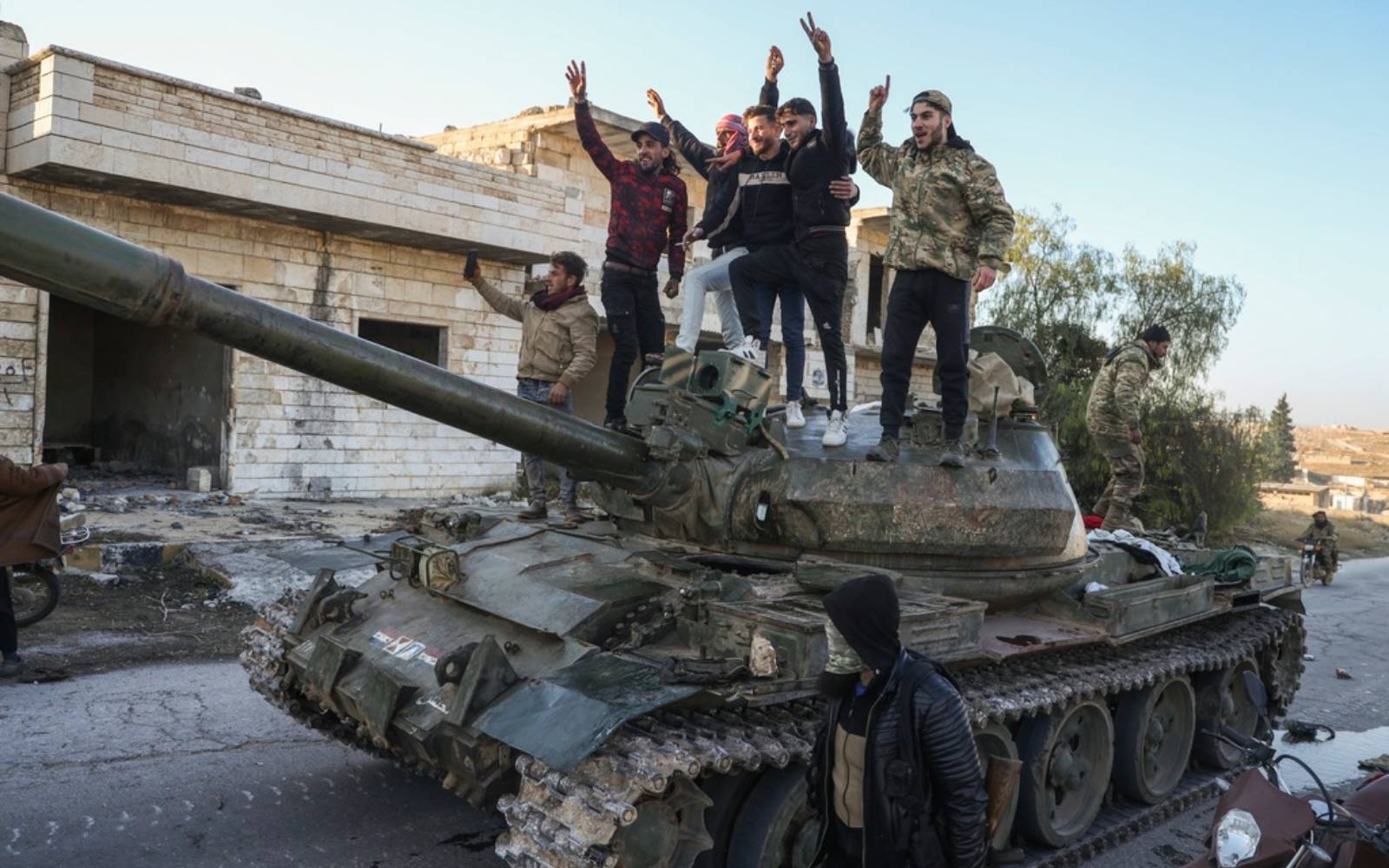Syria’s Tumultuous Northwest: A Regional Crisis at the Crossroads
The conflict in Syria, already one of the most complex and devastating in recent history, continues to unfold with alarming intensity in its northwest. Recent clashes between the Syrian army and various armed factions, most notably those led by Hayat Tahrir al-Sham (HTS), have led to significant territorial shifts, including the capture of Aleppo and Idlib, two key cities in the region. These developments are shaking the region’s already fragile security, with profound implications for not just Syria but the broader Middle East.
In the midst of this chaos, Iranian Foreign Minister Abbas Araqchi has sounded the alarm on the growing threat posed by armed factions operating across northern Syria. In a phone call with his Egyptian counterpart, Badr Abdel Ati, Araqchi expressed concern that the spread of these militant groups, with their increasing control over large swaths of Syria, is jeopardizing both national and regional stability. Araqchi’s warning underscores a broader strategic concern for Iran, which has invested heavily in its support for Syrian President Bashar al-Assad’s regime. Tehran, which has long viewed Syria as a key ally in its regional dominance, is clearly worried about the growing strength of anti-regime factions in the northwest.
Iran's stake in Syria goes beyond its military involvement; it is about the preservation of a strategic corridor that links Iran to Hezbollah in Lebanon and to its other allies in the region. The emergence of powerful militant groups in northern Syria threatens to disrupt this corridor, a scenario Tehran is desperate to avoid. Araqchi's calls for increased diplomatic efforts and regional consultations are likely a reflection of Iran's urgency to stem the tide of instability.
The escalation of violence in the northwest, particularly around Aleppo and Idlib, has exacerbated the humanitarian situation. Thousands of civilians have been caught in the crossfire, with reports of heavy casualties and displacement continuing to mount. The brutal fighting, coupled with the presence of multiple armed factions, is making it increasingly difficult for humanitarian aid to reach those who need it most.
But the situation is not just one of military offensives and humanitarian suffering. It is also about regional geopolitics. The Syrian conflict, at its core, is a proxy war, with various actors — including Iran, Turkey, Russia, and the United States — all pursuing their own interests. Turkey, which has supported rebel factions in the northwest, views the rise of groups like HTS with mixed feelings. While these factions are aligned with Turkey’s broader goals of curbing Kurdish separatism, their growing power could challenge Turkish influence in the region.
For its part, Turkey is also concerned about the shifting balance of power in Syria. Ankara has been actively engaged in the Idlib region, where it has deployed troops to monitor ceasefire agreements and provide support to opposition groups. However, the mounting military successes of HTS and other factions threaten to undermine Turkish efforts to stabilize the region. With HTS pushing toward Hama, the prospect of further Turkish involvement in the conflict seems increasingly likely.
The dynamics in Syria’s northwest are a microcosm of the wider regional struggle for power. As Iran and Turkey manoeuvre for influence, other actors — including Russia and the United States — are watching closely, each with their own interests at stake. Russia, an ally of Assad, is invested in maintaining its military presence in Syria, while the U.S. has been supporting Kurdish forces in the northeast as part of its fight against ISIS. This fragmented approach to Syria has made diplomatic solutions exceedingly difficult to achieve.
At this critical juncture, the calls for diplomacy by Iran and Egypt are important but may not be enough to prevent further escalation. While Araqchi's dialogue with his Egyptian counterpart emphasizes the need for continued consultations, the reality on the ground is that military action remains the primary tool being used by all parties involved. Despite diplomatic gestures, the situation in northwest Syria remains volatile, and the broader region could be on the brink of even deeper instability.
Ultimately, Syria’s future remains uncertain. The military advances by armed factions such as HTS, combined with the entrenched interests of regional powers like Iran and Turkey, make it difficult to predict what the future holds. What is clear, however, is that the conflict in Syria — far from being an isolated event — is a central piece in the broader puzzle of Middle Eastern geopolitics. Its outcome will have lasting consequences for the stability of the region and the international community's efforts to broker peace in the Middle East.
As the conflict in Syria’s northwest intensifies, one can only hope that regional and international actors will find the will and the means to move beyond military action and toward a sustainable political solution — before the crisis spirals further out of control.


Comments
Post a Comment